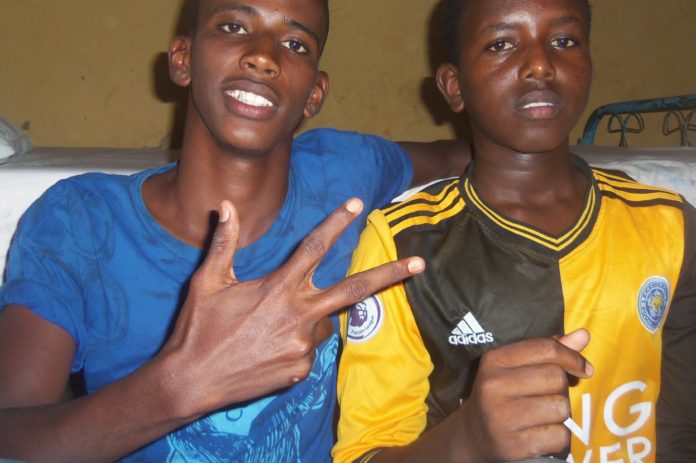By Mary Mwendwa
Garissa County, Kenya: “I was recently arrested by police on my way to Garissa because I did not have an identity card. I spent ten days in police cells,” a distraught Aden Salah recounted.
Homesteads dotted with houses made of thin brown dry sticks gather at a small quiet village.
Here, I meet Salah for an interview on challenges facing his fellow youths in Kenya’s northern frontier district. Salah who is a 19-year-old male cannot hold his tears as he recalls the fateful day he first stepped into police cells.
He is a victim of the Identity cards ( ID) crisis that has been a thorn in the flesh for marginalized communities and those living near Kenya’s border with neighboring countries like Somalia, Ethiopia, and South Sudan.
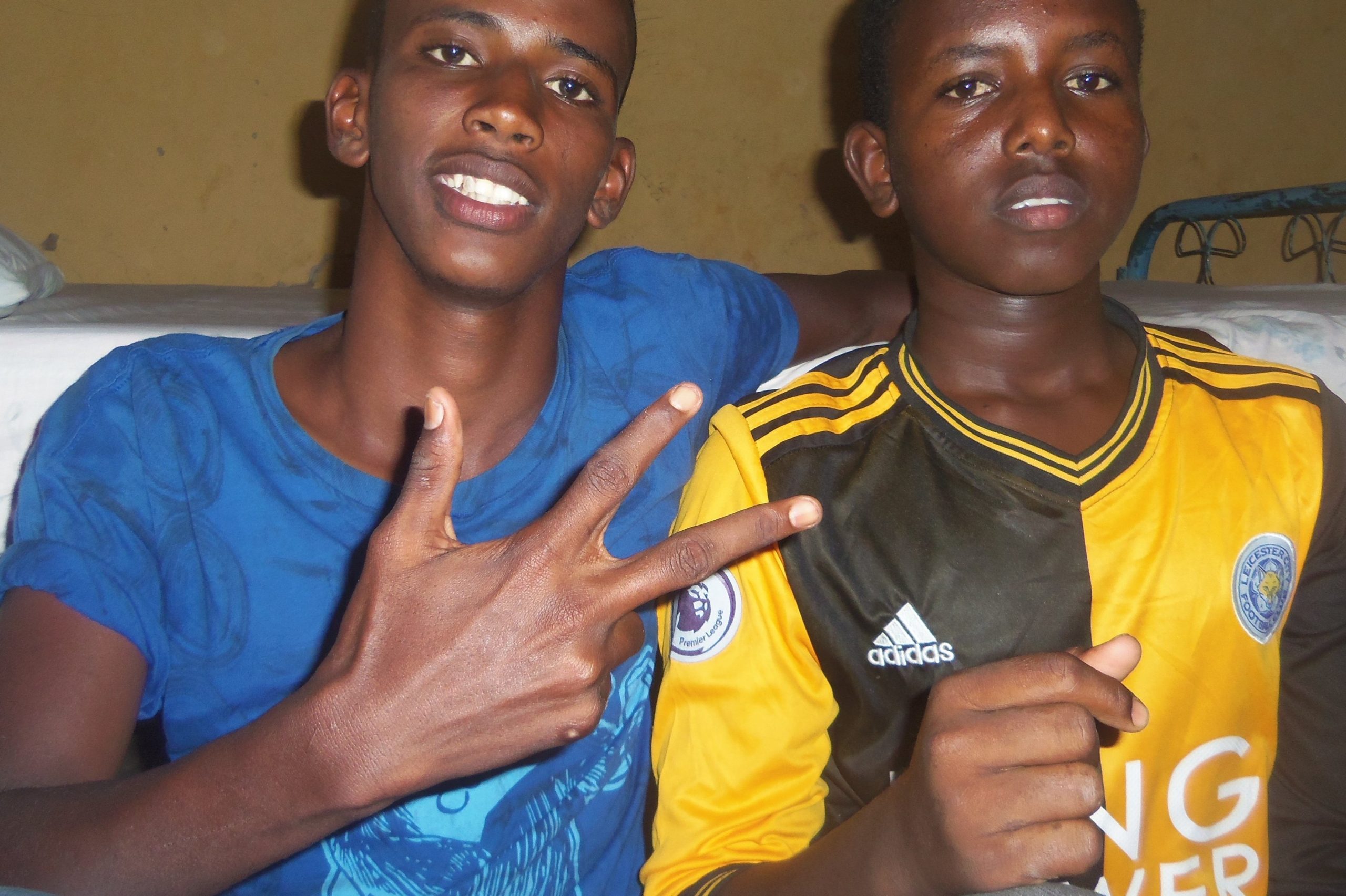
The rough terrain, lack of a mobile phone network, and the scorching heat are what meet any visitor at Korakora village located about 40 kilometers from Garissa town where Salah calls home.
Here, every day is a nightmare due to the threat of attack from Somalia based Al Shabaab militants.
Communities residing in Korakora retain fresh memories of a loud blast that woke them up in the wee hours of July 2020. An attack that saw communication masts destroyed and administration office blocks torched.
“We do not have a mobile phone network here, Al Shabaab attacked our village and rendered it useless, luckily no life was lost,” said Salah. I cleared high school last year and effort to acquire a Kenyan ID have hit a wall,” he added.
Comparably, Isaack Abdullahi narrates how he has tried to get an ID in vain.
“We do not have a chief who is from the community, the one who is supposed to head this location is a stranger to us, he is in hiding and no one knows even where his office is,” said Abdulahi.
The 19-year-old confides to me that he feels like a prisoner in his own county. His movements are restricted within a very small radius in Korakora village.
“My friends from other locations have IDs, and I admire them, I wanted to do a course in mechanical engineering. I am frustrated so much. I wish the government looked into this matter with the seriousness it deserves, ”said Abdulahi.
Fardusa Muktar, a 20-year-old says that she is frustrated because she cannot pursue her dreams.
“We believe that we are discriminated against and marginalized when it comes to access to IDs. I really need to get out and look for something to do.”
“Here, we fear attacks from Al Shabaab and also this is a very dry region, we do have recurring drought and famine, where do we turn to, the government has turned a blind eye to us.” said Muktar.
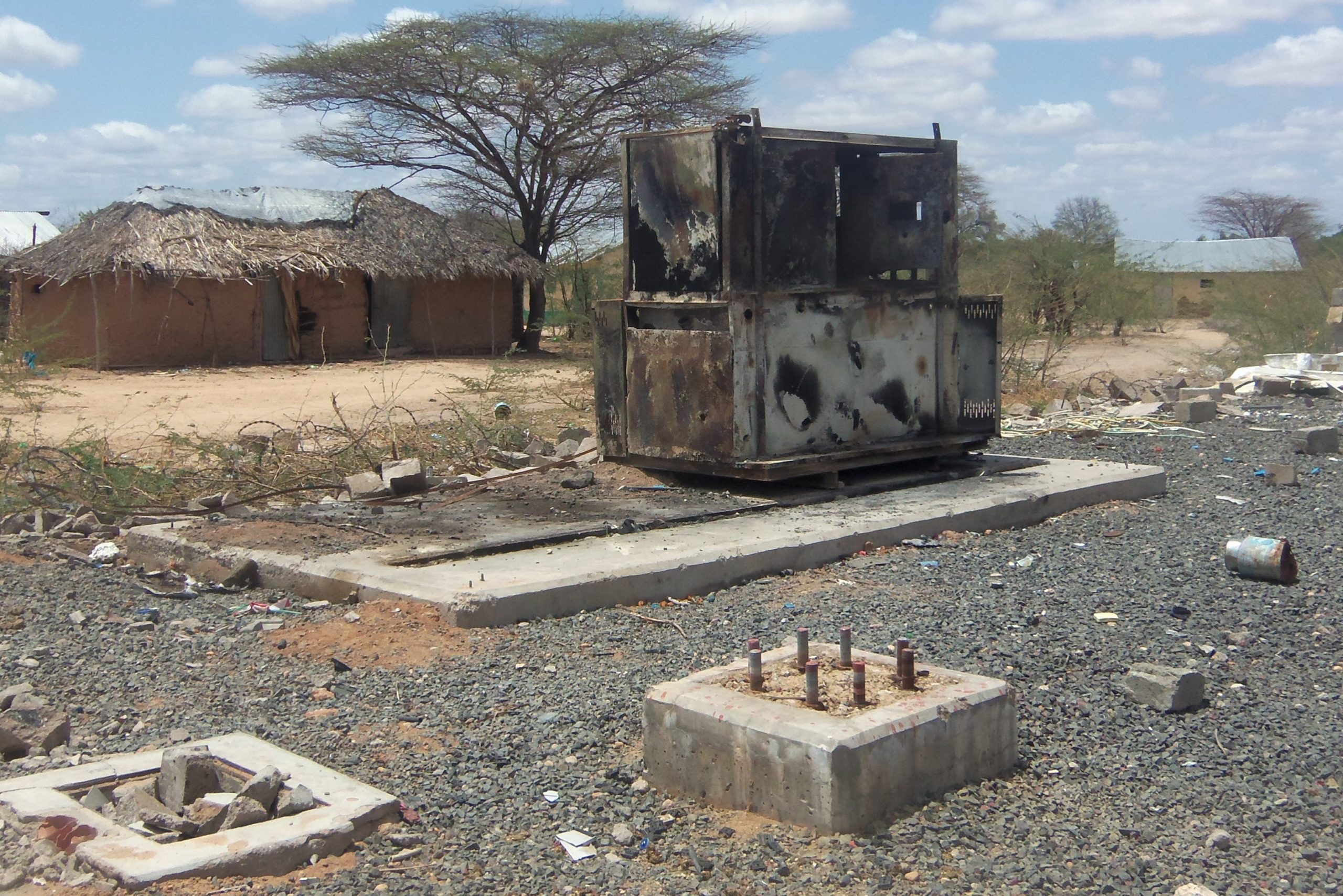
In the same village, the elders are a worried lot. Ahmed Ali, an elder at Korakora narrated about the nightmare of acquiring IDs in his village.
“For the last two years no IDs have been issued here, we do not have a chief that comes from here, the one we had retired and now we have a new one who is not a local here and never comes to see us. He operates from Garissa and therefore we cannot access him,” said Ali.
The Chapter 3 article 12 of 2010 Kenya’s constitution stipulates that every citizen has rights to, privileges, and benefits of citizenship. It further states that a Kenyan citizen is entitled to a passport and any other document of registration or identification issued by the state to all citizens.
However, this constitutional right remains a mirage for the youths of Garissa because of various bottlenecks.
Michael Mwangi Meru, County Commissioner of Garissa County, said it shares a border with Somalia hence the rigorous process of scrutinizing applicants before they are issued with an ID.
“Garissa County houses the North Eastern Regional headquarters and therefore we have a large area to cover in terms of administrative work,” said Meru.
“We have a multiagency task force comprising of village elders, registration officers, chiefs, and security agencies team, all these people help in the vetting process to ascertain that only Kenyans are given IDs,” he added.
Meru notes that state officials face several challenges like the absence of proper documents by applicants, the pastoral nature of the community, and also double registration among some individuals.
“Community here are ignorant of the consequences of going to a refugee camp, during drought some individuals decide to go to some of the refugee camps like Dadaab to get help. Their data is captured there,” said Meru.
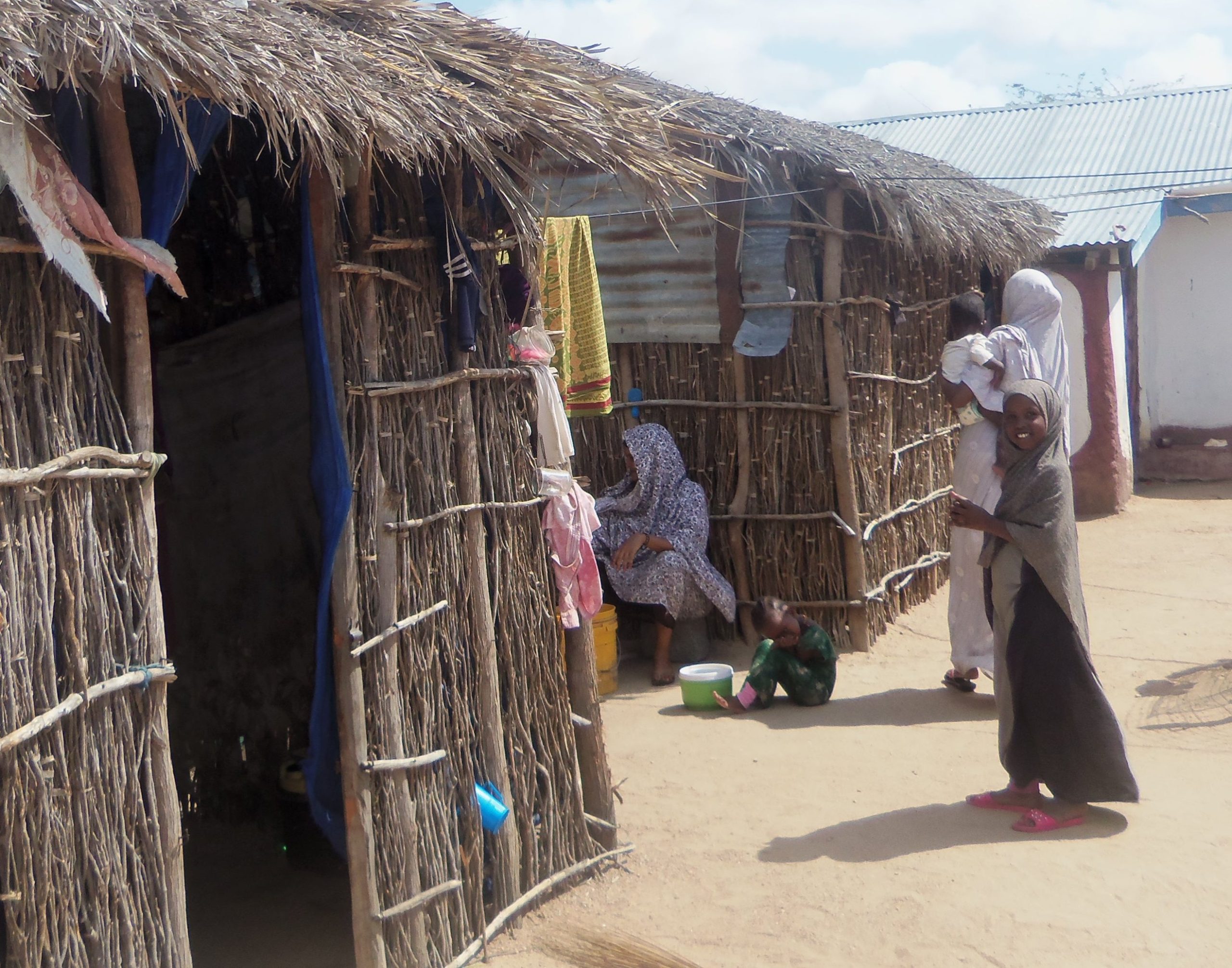
“While at the refugee camp they realize that they are restricted and come back to their home. Now, they get into problems when they want IDs. They are denied, “he added.
He concludes by saying that they try their best to help Garissa people get IDs. The deregistration exercise, which was a government directive of double registration individuals is underway. They have done vetting in some areas.
Double Registration
Apart from IDs registration hitches, double registration by Garissa residents is another huge challenge state officials have grappled within the recent past.
I met Mohammed Hassan at Haki na Sheria offices, a non-governmental organization (NGO) that is offering help through paralegals and other advocacy activities in Garissa County.
Hassan who is 26 years old without an ID and comes from Jarirot village in Garissa County.
“ I was orphaned at a very young age, life became very difficult for me and my mother, we went to Dadaab refugee camp some years back to seek help. Our data was captured, we did not know the repercussions of this exercise towards ID registration,” said Hassan.
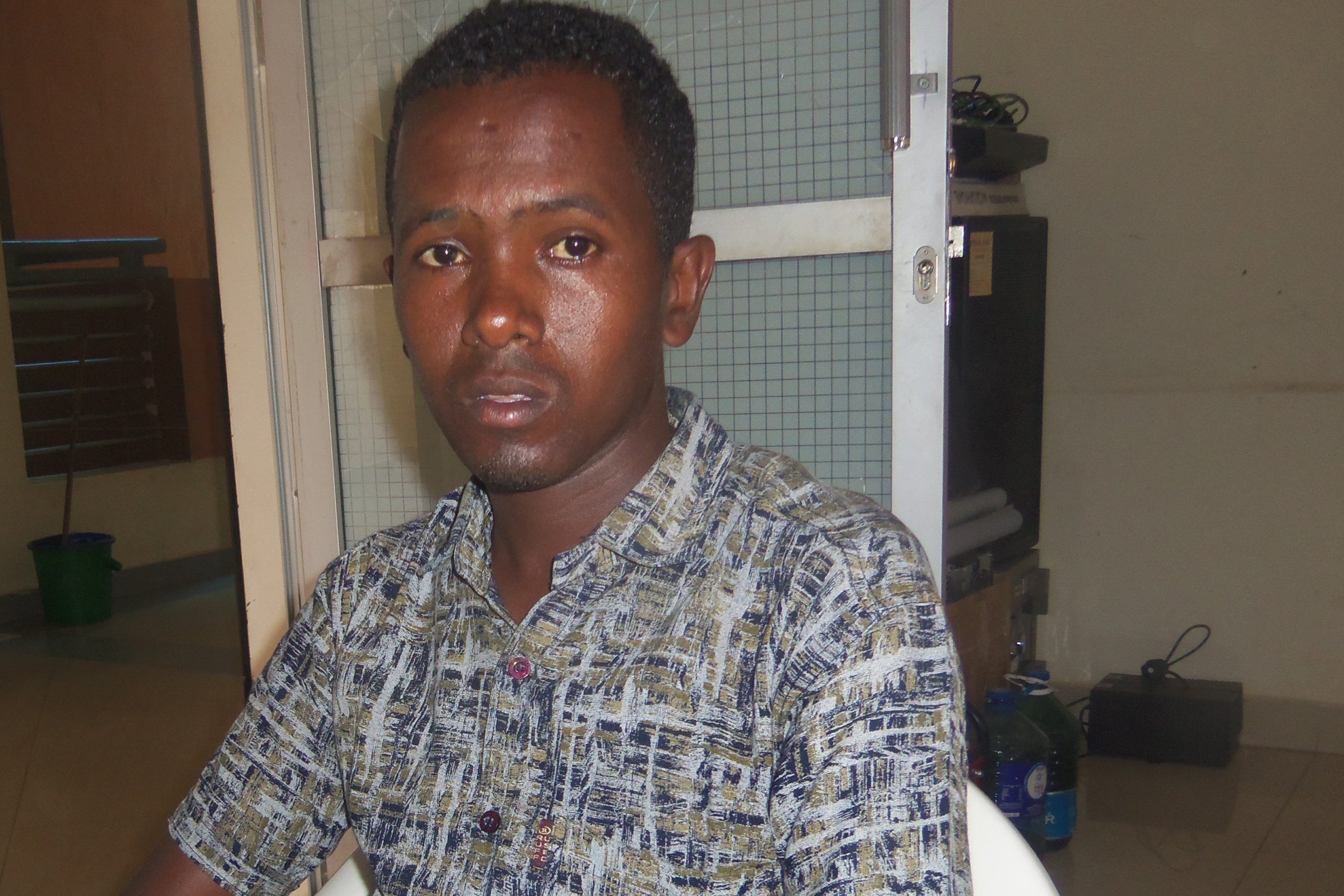
A worried and frustrated Hassan reveals that he felt a sigh of relief when the government announced about deregistration exercise targeting individuals who applied for the national ID and their details were also captured at the refugee camp database.
However, last year his hopes were thwarted when the vetting exercise ended without him being vetted on that particular day.
“ As you know during vetting, the officers have a certain number of individuals they vet in a day, I was not lucky that day, I was among those who were cut off. We were promised next time. I do not know when that time will come,I am suffering I cannot get any work,” said Hassan.
At Bula College village, Raho Yussuf, a mother of one aged 26 cannot hide her frustration due to the double registration saga.
“ I went to Dadaab in for a visit and my data was captured. I did not realize that will put me in hot soup. Now I went to Umma university to study business management. I have cleared school but I do not have the certificates. My life is stuck I desperately need an ID to help me look for employment,” said Yussuf.
Yussuf is eagerly waiting for the deregistration exercise which she has no idea when it will happen. Meanwhile, her dream of working is diminishing each passing day.
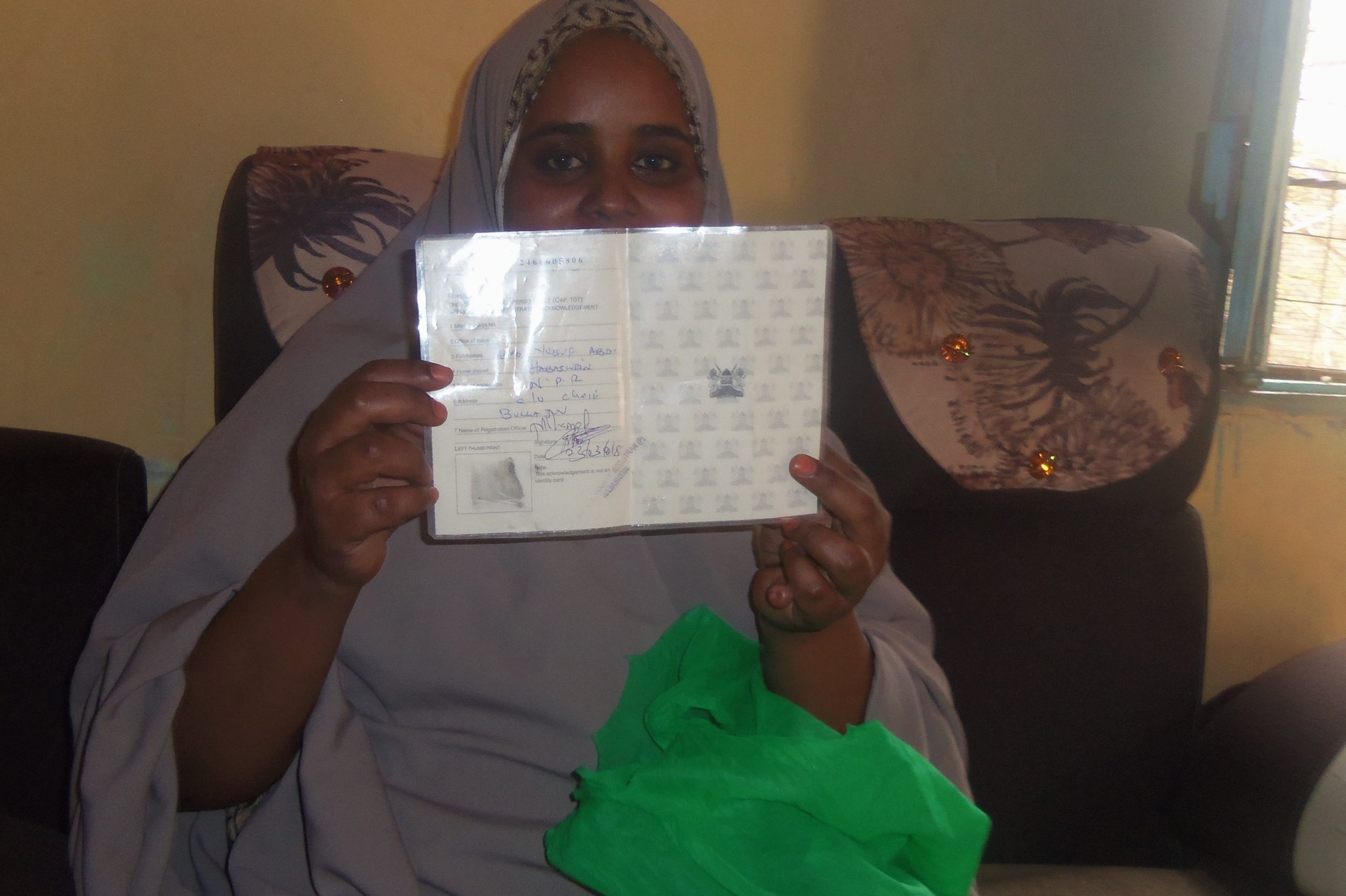
Peter Masese, Regional coordinator, National Registration Bureau reveals that due to the covid-19 pandemic, ID registration and vetting in Garissa County have been affected. “ We have not been able to conduct the exercise after coronavirus hit the county, ”said Masese.
Masese further confirms that ID registration and vetting in the vast northern Kenyan frontier involves careful scrutiny of individuals to ascertain the authentic citizens.
“We border the war-torn Somali country where there is a huge demand for Kenyan national IDs. Literacy levels, lack of proper documents, insecurity, and forged documents are some of the challenges we face here,” said Masese.
He said authorities intended to register 35,000 new applicants for IDs for the financial year of 2019-2020 but the number shot to 46,000.’’
“We are increasingly noting an increase in new applicants for IDs and also those who want to be deregistered from refugee data,” said Masese.
Community outreach and legal help
Haki na Sheria, a grassroots organization based in Garissa County has been of great help to the community through their outreach and legal help through their paralegal team. Khasida Abdulahi, Program Officer at Haki na Sheria reveals how they help the community to understand their rights and to acquire documents.”
We work closely with a paralegal team at our force which advises individuals on the process and at times we do village visits for awareness,” said Abdulahi.
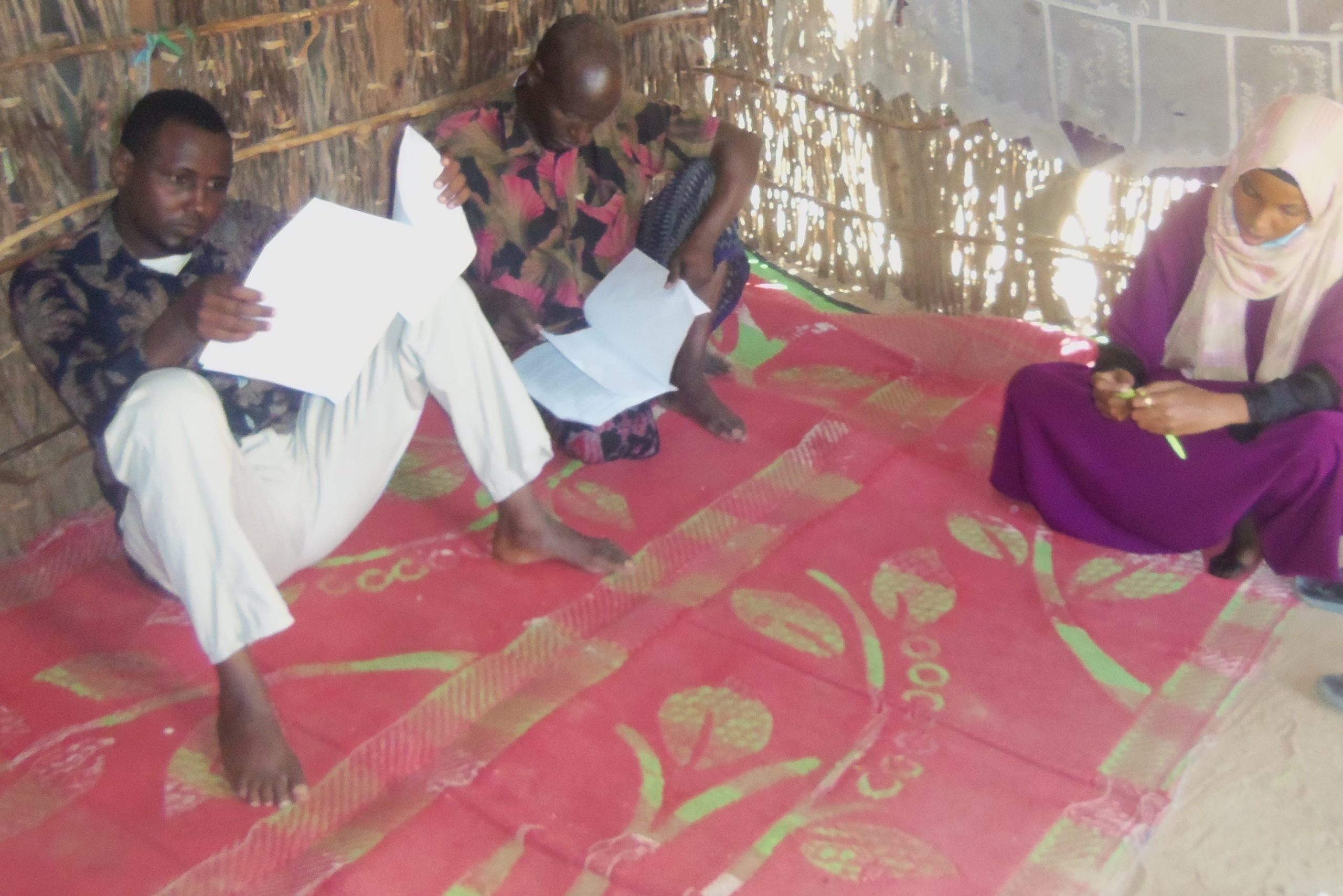
Abdulahi notes that it is not always a walk in the park when it comes to working with the community.
“ We have some challenges on logistical support because Garissa is large and vast, we cannot access each and every village, also the pastoral nature of community here is another challenge,” said Abdulahi.
“ID registration and Vetting is not a regular exercise in this region, this has made it difficult for many youths to get their documents.”
According to Mustafa Mahmoud, Senior Program and Advocacy Officer, Citizenship from Namati, “ Without documentation, Kenyans struggle to realize a wide range of other human rights in their lives – from access to healthcare and education to the ability to engage in political participation like voting to be able to enjoy the protect (rather than harassment) of the state.”
Mahmoud further notes that Namati and its partners focus on legal empowerment – helping people to understand, use, and shape the laws that affect them. “We work with Kenyan communities in three regions of Kenya to assist them in overcoming discrimination to access documentation, track the process to build evidence on how the system is working in practice, and support communities in their efforts to improve the citizenship and identification system for the country.”
He furthers adds that subjecting particular communities to differential treatments like being asked for additional documentation, is required to only apply on certain days, and being subjected to a discriminatory vetting process that adds an additional layer to the process is by all means direct discrimination canvased as national security. “By doing so, we profile these communities as security risks and thus exposing them to xenophobic attacks.”
On international frameworks, Mahmoud notes how Kenya is a signatory to many conventions including the African Charter on the Rights and Welfare the Child. This convention establishes the African Committee of Experts on the Rights and Welfare of the Child.
He gives a case of human rights violation that was handled by the committee, “ In 2011, the Committee made a decision in regards to a case submitted on behalf of the Nubian child against the Republic of Kenya. Adding that “The decision cited that the Kenya government had violated article 6 of the charter that requires a direct and strong link between birth registration and citizenship and by not having that link at birth, the Kenyan child especially the minorities like Nubians have a burden to prove their Nationality at the age of majority and this is not in the best interest of the child.”
Nine years later, there is nothing that has been done to implement the ruling.
Mahmoud signs off by calling upon the government to stop vetting processes as it discriminates and adds more waiting time to ID applicants, “Discriminatory vetting should be stopped as it adds an additional wait time for minorities and also exposes them to corrupt officials as they become desperate to obtain the ID card. Because vetting is imposed on the basis of ethnicity or religion – not on the strength of the application and documentation an applicant provides – it has no place in a modern, diverse, democratic Kenya.”
Registration of person Acts 2013 and 2014 states a document should be issued within 30 days from the date of application. We are yet to see this implemented among youths in Garissa and other marginalized groups living near border points.

